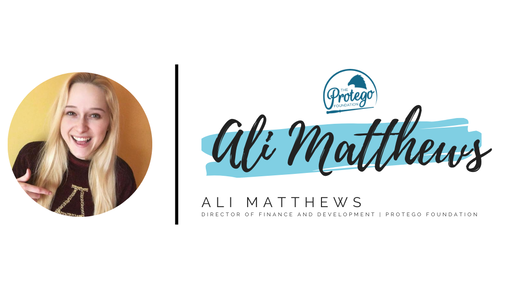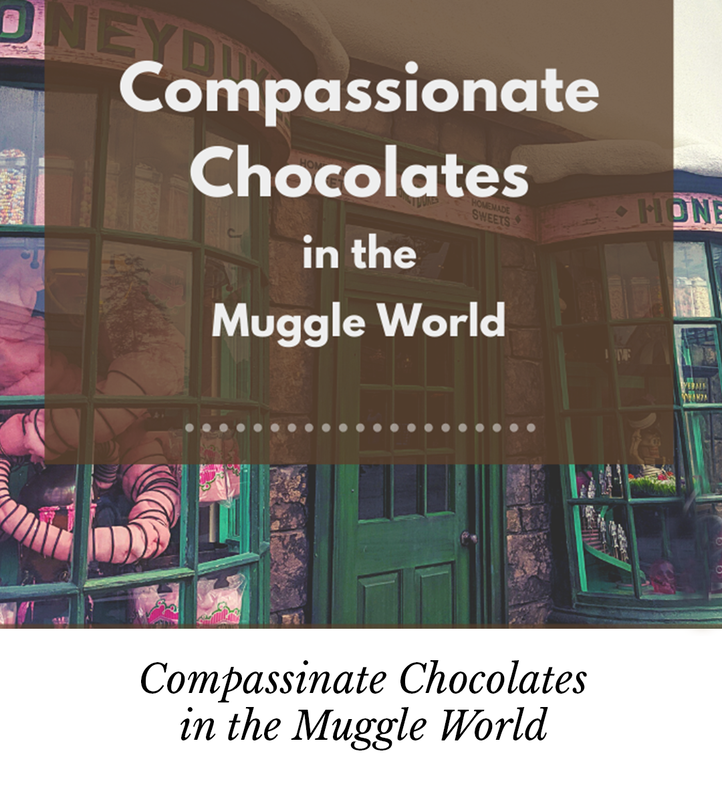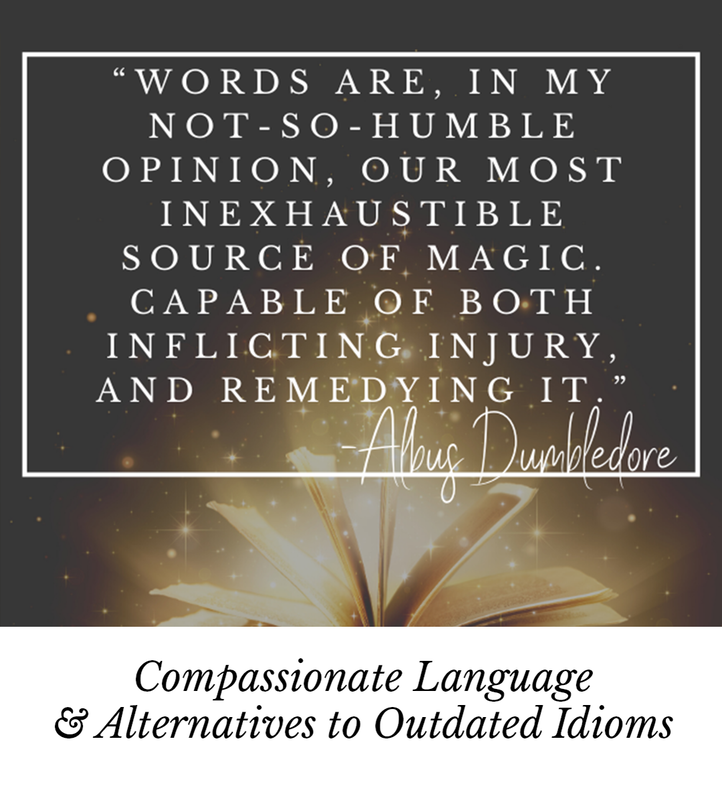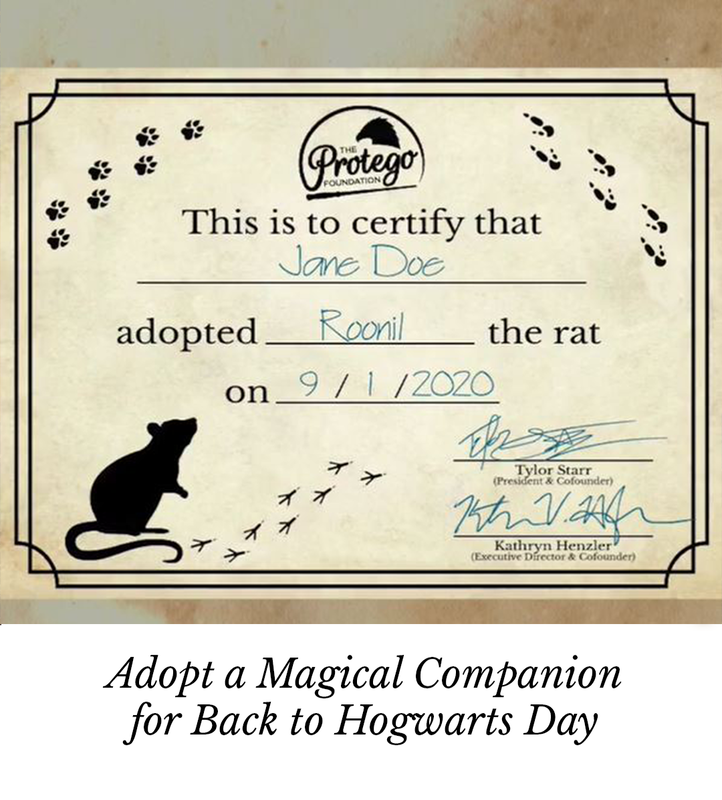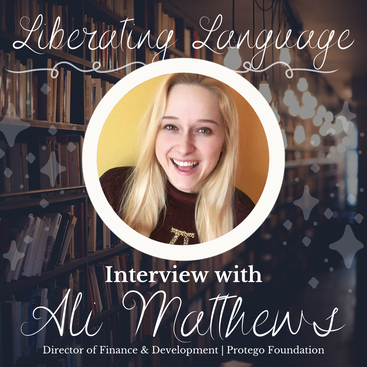 Language wields tremendous power. As we explored in our article “How to Refer to Animals and Magical Creatures Compassionately”, it isn’t just what we say that matters, but how we say it. Last time we took a look at the way animals and magical creatures are devalued in the wizarding world, and we proposed some alternative idioms to the wildly outdated ones many people currently use. Now we’re back with Ali Matthews, Finance and Development Director here at The Protego Foundation, to talk more about how we can liberate our language and why we owe it to our animal friends to do so!
Our language and thoughts are so influenced by tradition and habit and everything that we do, but it can become a real problem if we’re not thinking about the way we’re using words. Words really have the power to create so much, from literature and poetry all the way to political speeches. And at the same time they also have the power to create labels and barriers and separate people from each other and also from other species, which is pretty much what I’m focusing on in my thesis: how humans use language to place animals in society and how the way that we speak about them affects the way that we view them. Can you tell us what liberating language actually means? Liberating language is super interesting! Especially the idea of exploitation-first language instead of the liberated language. For instance, saying “circus elephants” or “farm animals” is exploitation-first. These animals are in those positions because of what humans have done to them. There’s nothing about a cow, a pig, and a chicken that make them “farm” animals. In animal rights speech we say “farmed” animals because “farmed” is showing that humans have made them farmed. There’s really nothing that separates them from cats and dogs, other than what they provide to humans or what we make them do for us. By using terms like, “hens used for egg laying” or “cows raised for dairy” we’re saying that first they are the animal and then we acknowledge that they’re being made to do something for humans. It’s showing that they’re a chicken first or a cow first. It’s giving them back some of that autonomy. That’s liberating language. And what does it look like to be writing a thesis about liberating language? The main idea is the way we use language to talk about animals and how that affects the way that we perceive them and place them in society. There’s always been a hierarchy within animals. We love dogs and cats, but we eat cows and chickens and we exploit rats in labs and sea animals in aquariums. My thesis is looking at the connection between the way we talk about animals and the way we perceive them. For example, why is it that we can say “burger,” but then if we say “cow burger” it throws people off? My study looks into why we are so dissonant to what (or who) we’re eating, wearing on our bodies, and putting onto our skin. As a population, we’ve taken the animal out of the equation. They’re at the center of what we’re doing, but we don’t see it that way, even though they are basically what we’re consuming or exploiting. It’s that dissonance that I’m looking at. Could you tell us a little more about taking the animal out of the equation? It’s called an “absent referent” when we take the animal out. We’re referring to an animal, but the animal is absent in our speech. You see that a lot in cases of racial inequality or feminism, or when referring to victims of abuse. They’re there but they’re really not there because we can push them away and not think about them. It’s a term that Carol J. Adams politicized in her book, The Sexual Politics of Meat. And how about “othering”? How does that play into exploitation? Othering is something to be aware of both in the wizarding world and the muggle world. It’s a really big deal, not just in animal rights, but in a lot of social justice movements. In the case of the wizarding world, it’s very similar to the muggle world in the main issues I’ve noticed—such as characters in the Harry Potter books referring to animals as “it” instead of “they.” A lot of people wouldn’t see their dog and say “Look at it chewing on that bone,” they would say, “oh look at them, or him or her.” But why is it that a dog can be called “they” or “he” or “she” naturally, but a cow or a bird are called “it” when they’re a living being and have worth? So why liberated language? The main point is getting people to start thinking about the choices that they’re making. The more we use liberated language when we’re talking about animals, the more people will sit back and say, “that’s interesting” and start to internalize their own choices and their language and in turn start to see the animals differently: as beings who deserve to be called “they” and not “it.” When we start to think about the words that we’re using and what we’re actually talking about, we’re not talking about food or clothing. We’re talking about an animal and we’ve completely taken the animal out of our speech when we say things like, “burger” or “nuggets” or “leather.” There was a cow in that skin wearing it before you were! Where do we see this in the wizarding world? “House-elf” is really the one that jumps out to me most! I love that in ProtegoCast episode 3 the hosts were all saying “house-elf, house-elf” for the first ten minutes but then by the end they were all saying “elves used in houses” and that’s what we want! We want people to hear their speech and be like, “Ooh, I need to check myself and check my speech and start changing it.” “Elves used in houses” is the biggest example. When Dobby is freed in the movie he says “I’m an elf.” He doesn’t identify as a “house elf.” Then there’s the “owl post.” The owl’s are being made to take the post around. “Owl post” implies that it’s their job and that’s what they’re for. Lastly, “Gringotts goblins.” They are goblins who work at Gringotts. They’re employees at Gringotts so we’re putting them first. I’m sure they have lives outside of Gringotts! Do you want to elaborate more on “it” being used in the wizarding world? I noticed it a lot in Prisoner of Azkaban specifically, because we get introduced to Care of Magical Creatures. When Hagrid refers to Buckbeak he says “he”, because Buckbeak is a he, but then Draco Malfoy says something like, “oh it’s killed me, it’s killed me” and he’s being typical Draco dramatic, but it really stood out to me. Hagrid is referring to Buckbeak as “he” and talking to Harry like “you can approach him” and “he likes you” but Draco says “it,” and that’s one example of animals being used as absent referent. We see it a lot, too, when the characters are talking about other animals, creatures, and beings. Harry refers to the merpeople as “they,” while grindylows are “it.” This brings up the question of what the deciding factors are to how we refer to these creatures. Having human-like limbs? Having language? It depends on the situation and the speaker, most likely. You spoke about liberating language and the wizarding world at Leaky Con in 2017. What did you cover in that talk? Mostly I discussed non-animal rights related linguistic features of the books, as well as different translations. I also talked about the matter of “beast” versus “being.” There’s kind of a negative connotation for “beast” versus “being” or “creature” versus “animal,” and I think that could also draw a line in the wizarding world with how wizards and magical folk and squibs see beings versus beasts. What are your thoughts on the language and classification system in FBAWTFT? Newt wrote the book a long time ago, and, well, language is constantly changing. There are words we've said five years ago and ten years ago that aren’t considered to be correct now. There are also words that’ve been brought back and were considered negative at one point and now are considered positive or neutral. I think the classification system is a little outdated and were Newt to publish an updated version of the book, I think he’d see the work that’s being done in the areas of animal rights and intersectionality by academics like Julia Feliz Brueck and Aph and Syl Ko, as well as those looking at ethics, such as Dale Jamieson, Alice Crary, and so many others, and he’d “modernize” the classification system, or even get rid of it altogether. What are your thoughts about idioms? When you hear something like “try this, be my guinea pig” if you’re baking something or trying something new, it’s normalizing the fact that you can use animals, like guinea pigs, who are abused in the cosmetics testing industries for your purpose. Idioms might seem so small and simple, but the more we internalize these things the more they are normalized, and we stop to think about the implications. There are plenty of idioms rooted in racism too, and we see people trying to put a stop to those, so why not animal-related idioms while we’re at it? I actually looked up the idiom“piggy-back off of” and it doesn’t have its roots in animal exploitation. It comes from “pick pack” and slowly evolved into what could be seen as an exploitative idiom now. Who knew? [Looking for more compassionate, animal-friendly idioms? We have some wizarding world-inspired ones here!] Do you have any advice for people who want to be more compassionate and intentional with their language? Start by recognizing the language you use and also listening to other people. Take note of the words you use everyday, and have conversations with people about things they notice about their own speech, whether animal-related or not. We use language and communication every day, and I think learning from others is essential in our own growth as humans and as activists! Practice some Ravenclaw wisdom to ask questions and some Gryffindor courage to challenge old thought patterns in both the Wizarding World and our everyday veganism and animal rights. A big, magical thank you, Ali, for taking the time to chat with us about liberating language! If you want to hear more from our resident Ravenclaw-rising Slytherin, Ali, you can catch her on episode 9 of ProtegoCast. You can also find her on Instagram: @diagonalii. Written by Victoria Tomis Accio More ARTICLES:
0 Comments
Your comment will be posted after it is approved.
Leave a Reply. |
The Protego Foundation's work is made possible, in part, thanks to Tylor Starr.
The Protego Foundation and its activities are not licensed by, sponsored by or associated with Warner Bros., J.K. Rowling, or their affiliates. 'Wizarding World,' 'Harry Potter,' ‘Fantastic Beasts' and all related names, characters and indicia are trademarks of and © Warner Bros. - Harry Potter publishing rights © J.K. Rowling.
FEIN 83-3531129
The Protego Foundation and its activities are not licensed by, sponsored by or associated with Warner Bros., J.K. Rowling, or their affiliates. 'Wizarding World,' 'Harry Potter,' ‘Fantastic Beasts' and all related names, characters and indicia are trademarks of and © Warner Bros. - Harry Potter publishing rights © J.K. Rowling.
FEIN 83-3531129



